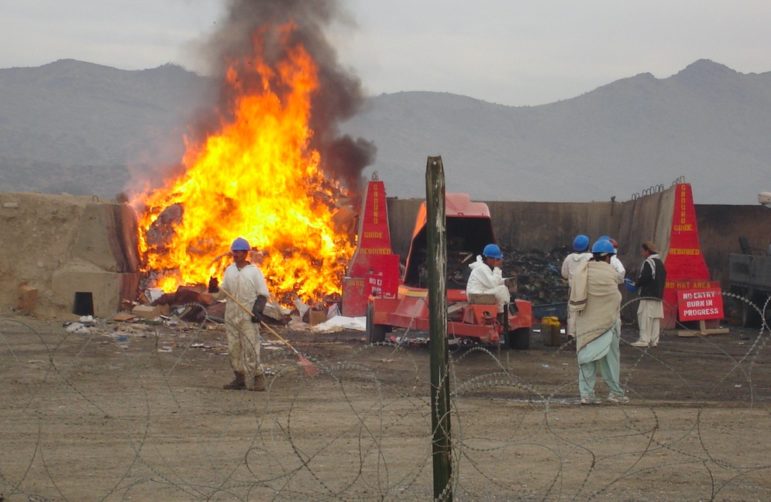Resource
Forced Labor and Fair Recruitment: A Toolkit for Journalists
The International Labour Organization has published a reporting toolkit to help investigative journalists cover forced labor, human trafficking, and other worker abuse issues.
The International Labour Organization has published a reporting toolkit to help investigative journalists cover forced labor, human trafficking, and other worker abuse issues.

A website and Telegram channel operated from Russia falsely claims to be a fact-checking site and, in fact, is repeatedly pushing out Russian disinformation about the war.

The reporter who first broke open the US military burn pits scandal and its hazardous environmental impact on veterans discusses how she reported the story and tracked its evolution to the halls of the US Congress.

Bellingcat’s Foeke Postma offers tips and tools for using new technology and online resources to investigate old photographs.
To help investigative journalists with their reporting on the Mpox public health emergency, The Journalist’s Resource has gathered numerous key facts, resources, and peer-reviewed studies.

Journalist Marcela Turati has spent years investigating who is responsible for the thousands of people who have gone missing in Mexico. She spoke to Revista 5W magazine about her work, the dangers of investigating corruption in the country, and why it is so difficult to try and track down who is behind violent crimes against journalists and migrants.

Some of the most significant progress in newsroom information security over the past decade has been in smaller, more recently-formed digital startups — many of them investigative outlets. They are proving they can effectively incorporate strong information security strategies into their highly adaptive and responsive workflows.

Data journalists often encounter the term “standard deviation” when reading research, from climate change studies to social science papers. This tipsheet explains how researchers use this measure, and how reporters can benefit from the context it provides.
A new generation of intrepid news organizations is rising across Europe – one that is strongly committed to serving its audience and democracy alike through public interest journalism. A new report by Netzwerk Recherche outlines this emerging innovative media scene and takes a closer look at how this New Sector reclaims journalistic terrain that traditional media has abandoned.

Investigative journalists work tirelessly to get the truth and ensure that the public is informed on topics that are of public interest. Jamlab interviewed nine African investigative journalists to talk about their experiences of reporting in their respective countries.